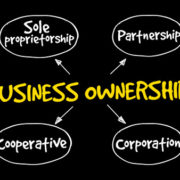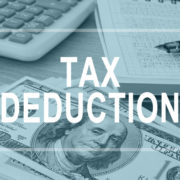Here’s What You Should Know About Startup Costs if You Plan on Incorporating Your Trading Business
As an active day trader, there can be many advantages to incorporating your trading enterprise. A lot of those perks pop up around tax season in the form of deductions. Forming your business and planning your tax strategy with a professional is the best way to fully leverage these deductions.
If you’re just getting started with your trading business, or beginning to consider taking the plunge into incorporation, you’ll have the additional advantage of claiming startup costs in the first tax year of operation. There are a few things about your business’ startup costs that you’ll want to keep in mind for tax time.
The IRS defines startup costs as expenses paid to create or investigate the creation of an active business.
Startup costs are considered one-time expenditures directly related to opening your business—separate from regular business expenses that can be deducted once you’ve officially begun. For tax purposes, these startup expenses are divided into three categories:
Creation & Investigation Costs
Expenses associated with doing research required to open your business fall under the creation and investigation category. These are costs such as researching and analyzing the market or traveling to visit potential office locations.
Preparation Costs
Preparation costs are those that are incurred before your business opens. These may include employee training, purchasing a website, consultant fees, advertising expenses, office supplies, etc.
Organizational Costs
The specific expenses involved in officially forming your business (corporation, partnership, LLC, etc.) are considered organizational costs. This would include legal fees, state fees, and any costs required to establish yourself as a business with the government.
Your first year of business you are capped at $5,000 of pre-incorporation expenses.
Anything over $5,000 can be amortized over a 15-year time frame. Amortization in this scenario means spreading out the deduction of expenses related to the startup of your business over a predetermined duration. Your startup costs will then be deducted from your taxable income in equal portions over the number of years to which you set your amortization schedule.
To ensure you’re taking full advantage of your business startup come tax season, it’s best to plan your incorporation with a professional.
The expert tax advisors at Trader’s Accounting are not only up to date on the most strategic tax solutions to build on your trading wealth, but also specialize in helping you file your business entity to take the next step in your trading career.
To learn more about the variety of tax and trading services we have to offer, contact us today for your free consultation!










Leave a Reply
Want to join the discussion?Feel free to contribute!